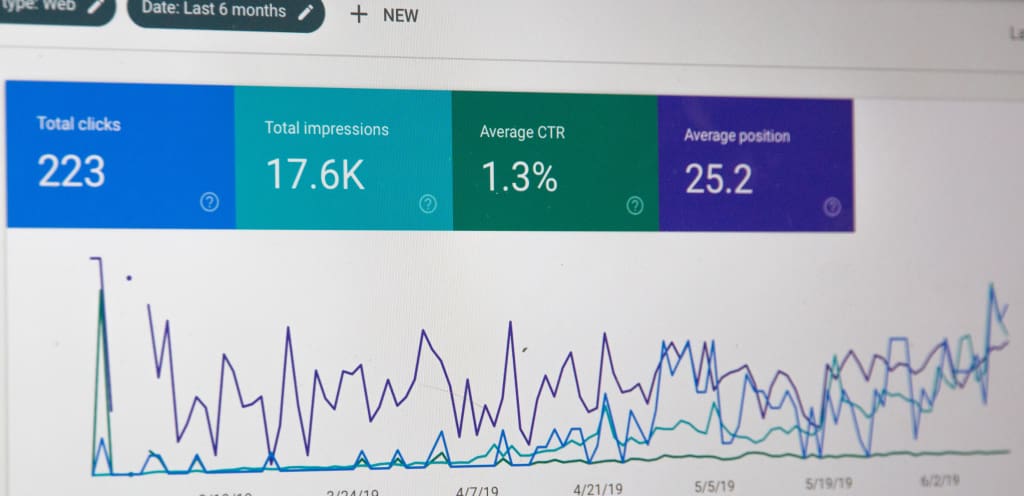Many marketing trends and consumer buying patterns now revolve around the digital space, driving brands to innovate and be more strategic. If you’re a business, you know that search engine optimization (SEO) plays a crucial role in building your online presence and reaching your target audience. One aspect of this is called off-page SEO.
Off-page SEO refers to optimizations outside your site, such as link building, journalist outreach, guest blogging, and social networking.
It considers what, where, when, and how consumers can end up searching for solutions to their problems. SEO leads them to your business as the answer they’re looking for.
A successful off-page SEO strategy will rank your website and content well in the search engine results. This means being part of Google’s top 10 search results when a user searches for content relevant to your niche.
What exactly is off-page SEO? From building your SEO foundation to understanding techniques, we’re here to discuss everything you need to know about off-page search engine optimization to help your business thrive.
What Is SEO, And How Does It Work?
Before with delve deeper into off-page SEO, let’s touch on the basics.
Search engine optimization, or SEO, helps sites gain web traffic, building the business’s brand awareness and increasing their audience reach.
It focuses both on the quantity and quality of content and uses the following elements:
Content creation
Here is where your SEO efforts come to life, as this is how you can directly communicate with your intended audience.
Content creation is where your keywords become useful, carefully interwoven into your blogs, articles, infographics, and social media posts to drive engagement and build good authority sites.
Your content should focus on the human aspect of your business, telling a narrative of who you are and what you offer, with SEO keywords naturally placed within the lines.
Keyword analysis
How you create a narrative is compelling, but the words you choose to incorporate within them matter just as much.
In SEO, the right keywords drive your search engine rankings. So you need to do proper research and validate the keyword relevancy before placing them into your content.
The catch is that you need to ensure prospective customers frequently use these words and phrases, as this is the only way to lead them to your website and engage with your products and service.
Backlink building
You must also focus on building backlinks, which are signals for a search engine that your site is authoritative and credible. Backlinks refer to links from other publications that point back to yours.
The more backlinks you have, the better they can help your search engine ranking. Of course, there’s more to it than the number of links.
When building links, remember that the inbound links have to be relevant to your business and from authoritative sites, too, among others.
How SEO Helps Businesses Thrive
Every marketing strategy talks about SEO. But how can it help your business grow? Here are a few benefits:
SEO boosts inbound traffic
SEO helps increase your online visibility, thus increasing inbound traffic to your site.
With the right strategy, you can attract quality leads from among them and guide them toward the next level of the customer journey until you can convert them into sales.
Off-page SEO, for instance, ensures that your content is featured at the top of search engine results pages (SERPs). This helps put your page in front of the right audience, leading them to visit your site.
Better customer reach
Competition in the digital space is tough, so you need to stand out as a brand. You need customers to pay attention to you, and one of the best ways to do that is to build a well-structured, eye-catching, and informative website.
Building a reliable website is just half the job, however, as you need to keep your website updated and valuable.
This means having a consistent flow of SEO content to keep customers coming, ensuring that you benefit from organic search traffic.
Remember that your prospective customers are looking for solutions to their problems, and this is where your content comes in.
Your articles can promote your products and services subtly and in a way that’s not only appealing but trustworthy and valuable.
If your content is valuable to your audience, it helps put them on top of SERPs, and you enjoy a wider reach and better business prospects.
Better brand trust and authority
Building an excellent online reputation should always be a part of your goal, but this doesn’t happen overnight. It’s an important ranking factor most businesses overlook, but one that makes the world of a difference.
SEO is built for long-term campaigns. Effective strategies can help you build trust not just on your prospective customers’ end but also on Google and other search engines.
Once you gain the favor of search engines, your website can earn more traffic for better business generation.
And once you begin ranking on SERPs, more prospects will get to know you more–and potentially convert into loyal customers and raging positive reviews.
What Are The Types Of SEO?
You’ve learned how SEO works and then discovered its benefits for businesses. Now, it’s time to know the two main types of SEO–on-page and off-page–and how they differ from one another.
1. On-page SEO
On-page SEO revolves around building your website.
This includes all the technical factors you hear–from HTML tags, web pages, user interface, mobile friendliness, and so on.
On-page SEO is about building your website to make it more cohesive and visually appealing to your viewers.
It’s focused on optimizing the content on your website, such as ensuring that you have the right keywords, meta description, headers, images, body copy, and internal and external links.
2. Off-page SEO
Off-page SEO is focused on getting your desired awareness, trust, and authority for the website you’ve built through on-page SEO.
This means promoting your website and making sure it ranks on the top search engines in the world.
It’s about building backlinks, gaining reviews, getting media coverage, and other kinds of promotion that will put your brand out in the open, where your target customers will see it.
The SEO you should be focusing on
Both on-page and off-page SEO are vital in establishing and promoting your brand.
Once you’ve established your on-page SEO and maintained it, off-page SEO may demand more of your attention and will be the key to a successful marketing strategy.
An effective off-page SEO will make top search engines see your site as authoritative and legitimate, resulting in higher ranks for your pages.
Also known in the digital marketing world as link building, off-page SEO introduces several tactics to help your campaign.
Focusing On Off-Page SEO Tactic: Why Should It Matter To You?
Off-page SEO can benefit your business in many ways. Here’s why you should improve off-page SEO techniques:
1. Enjoy increased visibility
In general, SEO can take you to better rankings. Focusing on off-page SEO allows your business website to explore new audiences and tap into other markets. How is this possible?
Many businesses rely on other authority publications to provide backlinks to their respective sites.
These quality links are exposed to visitors that may not frequent your industry but have the potential to convert into good leads.
If they were to click on an anchor text with a link to your page, for instance, they add to your website traffic and brand exposure. The more people who know you exist, the better it will be for your business.
2. Build offline relationships
While SEO is mainly about the online space, you also need to pay attention to the physical world as a business. With the help of off-page SEO, you can build relationships outside your websites, such as by investing in events, sponsorship, and collaborations.
With offline relationships as part of your long-term strategies, you can enjoy the power of word of mouth, an increase in customers, and returns on your investments.
One of the simplest yet most effective ways to combine the best of both worlds? Print QR codes that lead directly to your websites and social pages!
3. Improve your domain authority and ranking on search engines
Being visible to prospects on the internet is a huge advantage, and the best way to do this is by earning authority links from other sites with high domain authorities. These links can back your credibility, especially since high DA websites already command customer trust.
Sites with plenty of quality backlinks tend to rank higher on search engines and increase their domain authority. You can also get quality backlinks through social media strategies, particularly through Facebook, Instagram, and Twitter, which are the most user-congested social platforms today.
4. Utilize social bookmarking
Social bookmarking relies on specific platforms allowing users to save web pages. This allows them to revisit sites later, at any time, and using any device. This is an off-page SEO benefit not many are aware of, but professional marketers utilize social bookmarking sites to gain better search engine rankings.
These sites work like search engines, and users can easily search and browse site pages. They can also comment and interact with a web page. Gaining positive reviews can help add value to your brand.
Some of the most popular social bookmarking sites are the following:
Users can create “boards” to save content through pinning. If they’re on the hunt for sushi recipes, for example, they can save relevant content as pins to get back to later. These pins can contain links to your web pages.
Medium
Although primarily an online publishing platform, Medium also serves as a social bookmarking site where you can publish and save posts for later. This can be treated like a separate social media site, so you can curate your content for audiences to see.
5. Create valuable branded content
In the world of digital marketing, content is king. Even difficult niches can enjoy better returns by investing in value-driven content, but in a sea of content blogs and other materials, how do you stand out from the rest?
With off-page SEO, you can focus more on branded content. Branded content is any content produced by content creators, funded or produced by a brand. In this case, this will be your business.
Although requiring more effort than usual, creating unique brand content can help you distinguish your business. Most businesses use social media to showcase content, including Instagram and Facebook.
6. Fortify brand recall and recognition
If you want to build a lasting business, brand recall and awareness should be part of your online strategies. While this is mostly integrated into digital marketing plans, off-page SEO can help you build a good brand through quality content and better website traffic.
By moving out of your website and optimizing social media content, you help people recognize you in online spaces they frequent. The better your content, the more they’ll remember your brand. But the better optimized your platforms are, the more they’ll engage with you.
7. Create eye-catching but optimized visuals
While it’s true that you need keywords, adding visual content, such as infographics, GIFs, images can make your website more attractive.
Once a backlink redirects them to your site, your prospective customers look for more than just text—they want photographs, videos, and other visual elements that can make the narrative more interactive and engaging.
Off-page SEO also focuses on the optimization behind these materials. You can also combine an on-page SEO to reap more benefits, which you can also employ on social media platforms.
Alt text, originally designed for better accessibility, can be written with keywords. With more relevant keywords on your site and social media pages, you can further improve your search rankings and searchability.
8. Integrate social media
Last but not least, off-page SEO can help you mesh your website and social media sites for better lead generation and traffic. Regardless of your business niche, your choice of social media can help bring in engagement.
Optimizing your social content can attract followers that can potentially convert to customers. More importantly, you take your brand out of the website for the world to see, experience, and remember. In the colorful world of social media, anything is possible.
What Are The Most Important Off-Site SEO Factors?
Off-page SEO is not made up of just keywords or natural links. SEO combines several factors to gain traffic, encourage searches for your brand and increase your engagement on social media.
Here are some off-page SEO factors to consider:
Backlinks
Simply put, backlinks are links from other websites that lead back to yours. Through backlinks, websites rank higher in search rankings since they gain more domain authority.
You can increase the number of backlinks for your website through link building. You have to take note, though, that not all backlinks have the same value.
Those that come from high-quality websites have more impact than those from the less authoritative ones. Backlinks that are used by established websites also add to your brand’s appeal in the eyes of potential customers.
How will you know if a backlink is good for your website?
For one, they should be authoritative. This means that the site containing your backlinks should have a high domain authority, which is also mostly referred to as domain rating (DR).
Google and other search engines use this concept as a basis for putting weight on that website, among other ranking factors.
Then, the website using your backlinks should be related to your brand. For example, interior design can be linked to a real estate development website.
If it’s interior design and astronomy, your backlink might pose more questions than clarifications.
Social Media
If there’s one thing that continuously developed and grew over the past years, it’s undeniably social media. These platforms are also vital in making the most out of your brand’s off-page SEO efforts.
You should have well-maintained social channels to further promote your brand online. To create a well-maintained page, you can create a strategic editorial calendar that considers the peak hours of postings, brand voice, and designs of publicity materials to execute the best campaign possible.
Social platforms are also effective in reaching out to your existing customers. While maintaining your relationships with them, you can also add new customers to your list once your postings reach them.
Social posts can be made to target a specific demographic. Just remember to be consistent and follow your calendar, so users can always access quality content when they decide to visit pages.
Unlinked Mentions
While natural links have been proven an effective factor in off-page SEO, mentions of your brands on other sites that aren’t directly linked can also benefit your brand. These unlinked brand mentions bring you into the spotlight and help in name recall regardless of not linking the keywords back to your site.
However, unlinked brand mentions don’t directly affect search engine rankings because they don’t have such links to your sites. But if you’ve invested in link-building strategies, these natural unlinked mentions can be turned into linked mentions.
You can reach out to the author, publication, or editor of the content and request a link to your site. It’s not 100% guaranteed that they’ll give you links, but it’s worth a try.
What Are Off-Page SEO Tactics You Can Use?
Off-page SEO is not as easy and simple as it sounds. You have to consider marketing technicalities and writing strategies, among others.
Multiple techniques can help put your brand in the open. Here are some of them:
Skyscraper technique
You don’t always have to create your content from scratch. Instead, you can take advantage of topics that already yield high engagements. From article blogs to infographics, this off-page SEO technique is known as the skyscraper technique.
You can choose existing ideas your audiences already associate you with, then find angles that you can improve on.
If you have written high-ranking content on an unconventional plumbing technique, for example, you can capitalize on the idea by creating more content about it.
Keep in mind that readers usually prefer content with more visuals. You can use photos, graphs, and other illustrations to add appeal to your content. You can also change the positioning of texts, tweak the color, or add images.
Another option is to add or update information from the original content. Add natural links, real-life examples, or explain things in more detail as you enhance your article.
You must also check the links to ensure that they’re working. Any broken links can affect your website’s performance, as these can be flagged by search engines.
Broken links are associated with bad user experiences. Also, remember to update the figures and dates involved in your content.
Newsjacking
Riding the trending news of the day can help you boost your brand because virality sells. Riding trends or major issues to create related content and connect them to your brand is called newsjacking.
News and headlines for the day continue to generate readers. Some can be curious enough to probe on their own. They research topics based on what they’ve read, and these are the people you can attract.
Through newsjacking, these people can come across your brand and learn more about it. It might look like a simple and easy step, but its impacts can be lasting.
Aside from commanding your target audience’s attention, newsjacking also establishes your brand as an expert in a specific field. If a news article features an opening of the latest condominium in town, an interior design company can use this to showcase its expertise in aesthetics and design.
If you successfully capture the attention of your audience, they might explore more articles on your website. This also allows you to become one of their go-to websites for relevant content.
Who knows? They might also recommend you to their friends and colleagues. That’s your audience expanding themselves for you, all thanks to off-page SEO!
Guest Blogging
Guest blogging means finding well-known publications, credible news organizations, and other authoritative sites and getting them to publish your branded content. Like newsjacking, this technique allows you to attract your intended audience.
Guest blogging can be a successful off-page SEO technique, but it requires effort. However, you need to choose the correct publication to showcase your blogs. It should cater to the same market as you do.
From there, choose a topic that will gain the interest of both your audience and the blog readers. After deciding on this subject, you can start sending a strong pitch to the site of your choice.
Don’t forget to send follow-up messages after two to three days! This will prove your interest to the editors of the organization.
With guest blogging, you can get exposure from their readers and gain backlinks from their site. This is also why it’s important to ensure that your chosen site ranks high on search engines. The website should have verified content, and credible creators since the website authority will also reflect on you.
Link Building
Link building used to be linked to black hat SEO, making it a forbidden technique. Today, search engines like Google can detect link-building schemes that provide no value to the content. This makes it important to ensure the quality and not just the quantity of your backlinks.
How can you get quality links? You need to publish only relevant content, so other websites can find it beneficial to link their website to yours. You can also invest in connections with other experts in the industry whose branding can emphasize yours, just as you could emphasize theirs.
You can do journalist outreach to reach out to writers and publications through SEO tools and outreach platforms like Help a Reporter Out (HARO). It’s a place that connects journalists who need expert insights and brands that need free media coverage.
There’s also broken link building that you can use to earn authority links. It involves finding pages with a broken linking page that you can replace with your own link.
Social Media Marketing
While social engagements don’t directly increase your Google search results ranking, they can still drive traffic to your website.
Most people now spend their time on social media, so maximizing your exposure on these platforms can be a huge help to your off-page SEO strategy as a beginner.
You can share written content on your social pages, supported by visual materials to engage your audience. This relationship building can develop their trust and loyalty to your brand.
It will also encourage them to share your content, which can help you build links.
But don’t forget to keep your content relevant, moderate comments, and provide the best customer service whenever you can.
More importantly, don’t post then ghost. You must engage with your audience by answering their questions, participating in discussions, and thanking them for their support.
For many businesses, social media marketing also includes influencer marketing. Any brand mentions from a trusted online personality can help boost your business, especially if you can send them your products for review and documentation.
Local Off-Page SEO Strategy
Some businesses often overlook the power of local SEO over mobile users. This combination of on-page and off-page SEO uses location to improve your brand’s visibility online, which is particularly helpful for local brick-and-mortar businesses.
Users can know who is at a particular place, when, and how often. It works wonders for targeted campaigns. For beginners, this allows you sustained access to a steady income stream brought by customers near your area.
Off-page local SEO strategies usually use the following techniques:
Word-of-mouth Marketing
You’ll be surprised how many businesses have reached success through word-of-mouth marketing (WOMM). According to a 2020 study by Whitespark, WOMM continues to be a massive off-page SEO factor through referrals.
While the past years have seen a significant increase in users on the internet, people still tend to trust recommendations that come up during meals and catch-up sessions with their family and friends.
Customer Reviews
Customers usually rely on product reviews before buying a product. This is the same case for SEOs. A study by BrightLocal revealed how people generally trust recommendations or referrals more than traditional ads.
This is also proven through review platforms like TripAdvisor and Yelp. All these boost your audience’s perception and credibility of your brand.
Local News and PR
A startup business can easily gain attention by tapping the services of PR and their community press.
This strategic off-page local SEO strategy targets possible audiences physically near your business. It puts you under the spotlight and generates buzz and excitement around your products and services.
Wrapping Up Off-Page SEO Guide
Off-page SEO offers a world of possibilities for your business as you go beyond your website. It helps build your brand, integrating social media, word of mouth, news, and other techniques with your marketing strategies.
With several techniques to choose from, don’t feel overwhelmed. You don’t have to do them all at once. It may take some experimentation to figure out the off-page optimization that will work best for your brand and niche.




